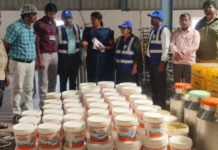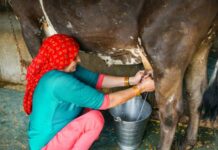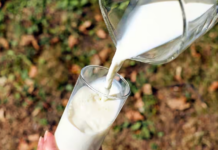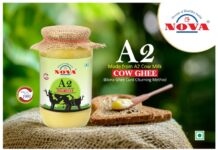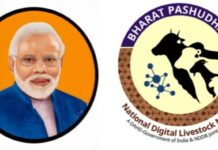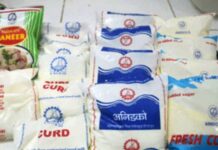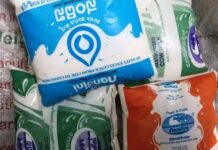New Delhi, May 08, 2023: In a country where cows are worshipped, the White Revolution is a forgotten spectacle. When Gujarat-born Amul, perceived to have been mollycoddled by the grand old party aeons ago but now backed by double-engine governments, makes a beeline for Karnataka, political parties are caught in the crossfire of canards.
It is a perfect turf for regional parochialism: how can Amul “take over” Nandini, owned by the second-largest federation of milk cooperatives in India, the Karnataka Milk Federation? What is laid bare in election-bound Karnataka’s ongoing political potpourri is nothing but the long-kept secret of dairy cooperatives. Their apolitical attire is off.
The world’s biggest dairy development programme of the 1970s is fast fading into oblivion. The politicisation of milk cooperatives is near complete, with patronage being thrust on them. There is a collective amnesia in the air. Milk may be a lifeline for 8 crore-plus rural households across the country, mostly small and marginal farmers and the landless. They make a compelling vote bank, while the cash-churning dairies are an essential honeycomb for the political bees. The cries of “Holy cow!” are no longer there.
For many years, Amul, owned by the Gujarat Cooperative Milk Marketing Federation (GCMMF), stayed away from political masters, despite its proximity to the leaders during the freedom struggle and post-independence. Verghese Kurien, the father of the White Revolution, and his mentor, Tribhuvandas Patel, were bluntly vocal about it. In his biography ‘I too had a dream’, Kurien was quoted as saying: “So clear and unshakable were his (Patel’s) priorities that if any politician even tried to put as much as a finger on the farmers’ milk cooperatives, he would have cut off their entire hand.”
That is an old story. Over the past decade, the BJP has ousted the Congress and conquered one by one all 18 cooperatives in Gujarat, the last one being the oldest union, Kaira Cooperative, founded by Tribhuvandas Patel himself, a few months ago. Of course, Amul, which initially faced opposition from BJP-ruled states, saw its fortunes soar. Clad in new colours, it happily rode into neighbouring states. It soon became India’s largest dairy company, surpassing the likes of Nestle and HUL.
In Tamil Nadu, Aavin is a relatively small yet important player. A bulk of the market is in the hands of private players such as Arockya and Tirumala. The ubiquity of Aavin has helped farmers fetch a higher procurement price Rs 35 and Rs 44 for one-litre milk from cows and buffaloes, respectively. Of course, in times of high inflation, dairy farmers are seeking better remuneration. Aavin milk is available across the state at a discount, especially for monthly cardholders. It is in the process of buying two lakh crossbred jersey milch cows to strengthen its network of dedicated milk suppliers.
In the 1970s, when Amul started buying cocoa directly from farmers in Kerala to feed its chocolate and ice cream businesses, the prices rose three times in the southern state as it broke a private monopoly. In the case of milk procurement, there is an unwritten code to respect cooperative federalism. For instance, Nandini and Amul may not procure directly from farmers in TN, but there is nothing wrong with purchasing milk in bulk from Aavin whenever the local cooperatives procure more than what they can process. Every cooperative should be allowed to invest and thrive, with more procurement centres and bigger processing capacities. That will be a boon for the rural economy.




